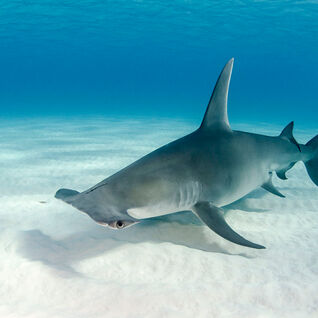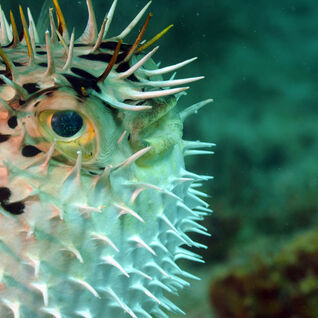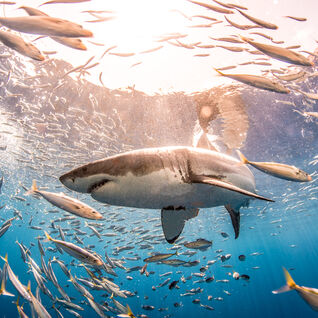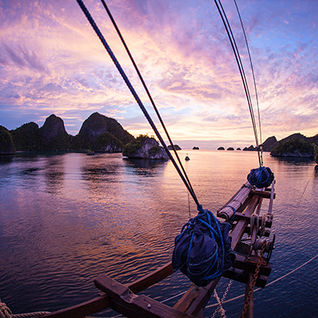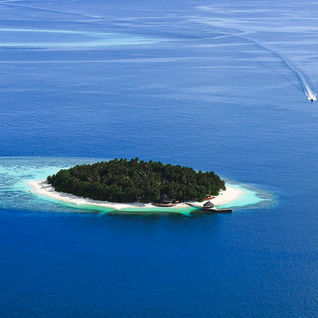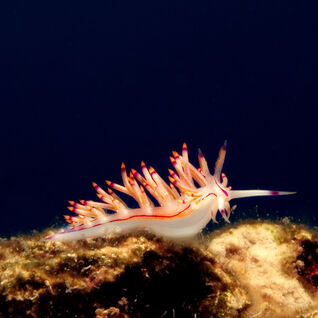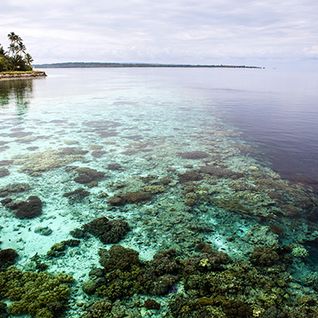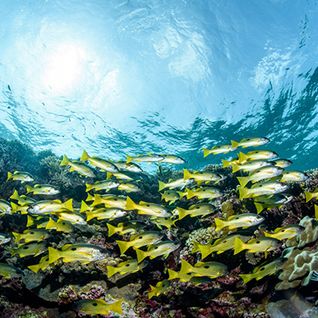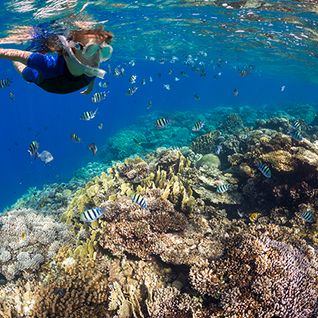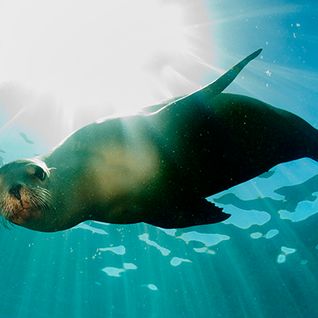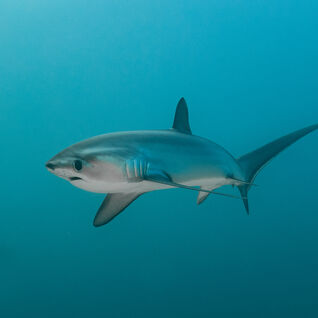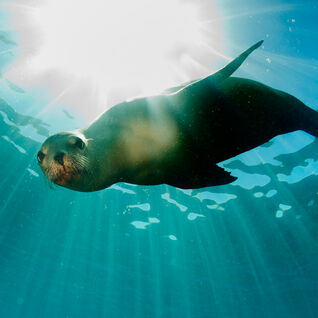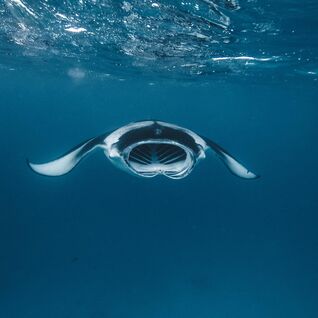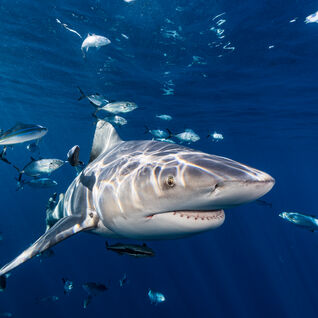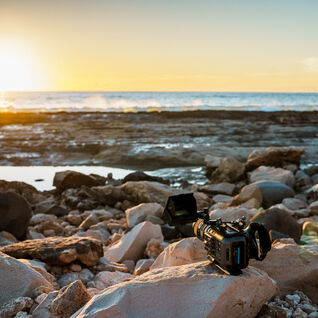We love scuba diving (and always will), but there's still a certain appeal to diving below the surface without tanking up. Freediving, also known as apnea, is a form of underwater breath-holding where you rely solely on your lung capacity, rather than diving equipment. Whether you want to swim silently with some of the big boys of the oceans, explore wrecks that dot the sea floor, or dive to depths that seem impossible for the human body, freediving offers a new sense of freedom. So, without further ado, let's dive into our favourite freediving facts…
1. Freediving is simply diving while holding your breath
Let's start with the basics. Freediving is diving underwater while holding your breath - we're talking no scuba tanks, no bubbles, just you and the big blue. The clue's in the name: the word 'apnea' comes from the Greek apnea, meaning 'without breathing'. While you're free from all of the tanks and gear that you would take while scuba diving, you may want to have a weight belt (to help you descend), fins (to help you swim faster and further), and a mask (to admire the wonderful world below).
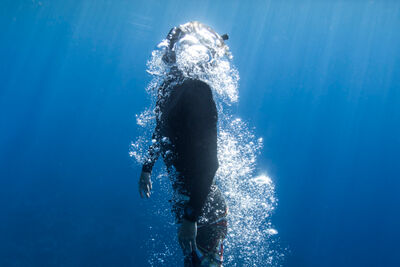
2. There are many types of freediving
Freediving isn't just one sport. Rather, it's a family of different disciplines with a range of competitive sports. Keen to know more? First, there's static apnea, which is simply lying on the underwater floor (typically in a swimming pool) and holding your breath for as long as possible. This is a great way to train your breath hold before you plunge into the ocean. Next up, there's free immersion, which involves pulling yourself up and down a rope - again, a great way to train yourself in the big blue. And then there's constant weight (either with or without fins), in which you descend into the ocean's depths without a weight belt. Freediving also overlaps with many other sports, such as spearfishing, and is a great skill for underwater photographers to learn.
3. The longest breath-hold in static apnea is 11 minutes and 54 seconds
Now, time for a mind-blowing fact about freediving: the world record for the longest breath-hold is an astonishing 11 minutes and 54 seconds, achieved by Branko Petrovic in 2014. Other world records include the deepest constant weight freedive, held by Alexey Molchanov with an incredible 133 meters. Meanwhile, the deepest no-limits dive is to 214 meters, held by Herbert Nitsch.
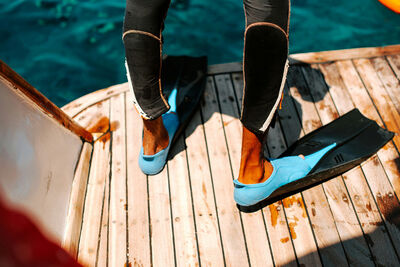
4. There are some advantages to free diving over scuba diving
Look, we love scuba diving (it's sort of what we do), but we would be remiss if we didn't highlight some advantages of freediving. Firstly, an obvious fact about freediving is that you don't have to lug your tank around. There's no equipment set up (although you may still want to wriggle into a wetsuit depending on the depths you plan to explore). Secondly, the lack of a tank means you're silent in the water, so you're less likely to scare off marine life. Thirdly, freediving is the closest you can get to flying - you'll experience the same weightless sensation as you do while scuba diving, without all the gear constraining your movement.
5. Freediving was the first underwater activity
Freediving is the world's oldest underwater activity, dating back over 7,000 years. In ancient times, people dove for food, sponges and pearls long before it became a sport. Modern freediving drew attention in 1949 when an Italian Air Force captain, Raimondo Bucher, dove to 30 meters on a bet, defying scientific beliefs about pressure limits on the human body.
But freediving is more than a sport; it still plays a vital role in traditional culture. In South Korea, the haenyeo - women of the sea - harvest shellfish by freediving. In Japan, ama divers have been collecting pearls for over 2,000 years. The Bajau people of Southeast Asia, known as sea nomads, have lived in sea homes for generations. They've even evolved to suit this freediving lifestyle by developing larger spleens, which help to store more oxygen-rich blood (and keep them underwater for longer).
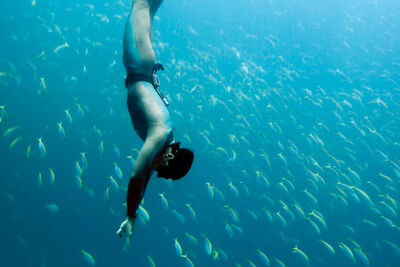
6. Your heart beats slower underwater
One of the most fascinating facts about freediving is that your body naturally slows down underwater. When you freedive, your heart beats slower in what is called the 'dive reflex', and can be three times lower than your pace on land.
7. Best places for coral reef freediving on Earth
Once you feel comfortable with your freediving skills, it's time to explore vibrant coral reefs around the world. Indonesia's Raja Ampat - the coral capital of the world - invites you with warm waters and crystal-clear visibility to admire over 600 species of coral. If you're based in Europe and looking for something closer to home, then Ras Mohammed National Park in Egypt offers dramatic drop-offs with more than 200 technicoloured coral species. For something on the other side of the world, the Great Blue Hole in Belize is a great opportunity to play with your depth (it descends to 125 metres deep), and features some haunting stalactites.

8. Freediving allows you to swim silently with the big boys
A wonderful fact about freediving is that because you're not producing noise or bubbles (which can startle marine life), you can hang out with some of the gentle giants of the ocean. Shark lovers should head to the Bahamas (and specifically Tiger Beach) for the chance to swim with tiger, reef and hammerheads. To swim with a humpback whale, travel to French Polynesia from July to November. This is one of the few places in the world where you can freedive with these singers of the ocean, so be sure to get holiday planning if this is on your bucket list. Of course, we couldn't forget to mention the Maldives. Head to Hanifaru Bay in Baa Atoll from May to November to dance with the ballerinas of the ocean, manta rays.
9. Freediving can help with stress
Freediving naturally trains calmness and focus. Without an air supply, you must slow your breathing, which reduces adrenaline. You also have to stay present to what's going on around you - this mindfulness not only extends your breath-hold time but also lowers stress.
10. Freediving is amazing, but safety comes first
One last freediving fact: it can be dangerous if done recklessly. Most freediving deaths are due to blackouts from hypoxia, which is why you should always dive with a buddy (unless you're extremely confident). So, whether you're gliding through cenotes in Mexico or exploring wrecks in Chuuk Lagoon, dive with a buddy, stay within your limits, and respect the ocean.

